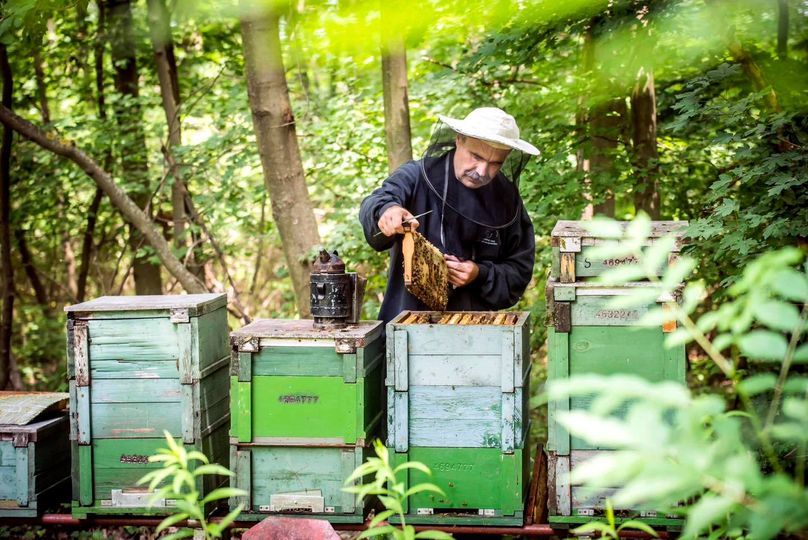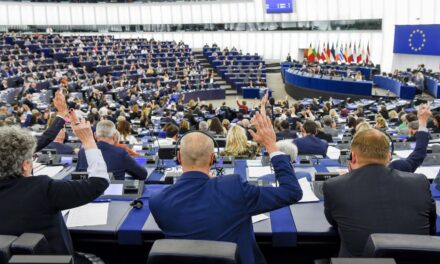Only Hungary banned Ukrainian honey, since it could freely enter other EU countries from Ukraine, and domestic exporters did not have access to enough mixed honey, and there was a fear that Hungarian suppliers would be delisted from Western European retail chains without re-export. According to the Minister of Agriculture's explanation, a further ban on Ukrainian honey could have led to the collapse of the sector, reports Világgazdaság.
"In order to avoid the collapse of the honey sector, Ukrainian honey had to be allowed in again, otherwise the exporters would not have been able to fulfill their contracts," said István Nagy, Minister of Agriculture, in the Parliament. The head of the ministry responded to the interpellation of Dávid Dócs, in which the representative of Mi Hazánk drew attention to the consequences of the lifting of the ban on the import of honey from Ukraine, mentioning that imported honey breaks down and lowers the purchase prices below the production cost.
The minister reminded that Hungary introduced an import ban on honey from Ukraine last June, when the European Union again allowed all agricultural products to come from Ukraine without quantitative limits. This was done so that "while the domestic producers are spinning the honey, their markets are protected. We also kept the ban during the Christmas season," he stressed.
However, in February, they received signals from the beekeeping industry that the mixed honey was sold out or not for sale at the given market price. The ban was withdrawn so that the honey sector would not collapse, traders would be able to fulfill their export contracts, so that they would not be delisted from all foreign trade chains.
The reason for the decision was to help the re-export of honey and prevent domestic companies from losing their Western European markets.
he explained.
It should also be taken into account that among the EU member states, only Hungary has banned the import of Ukrainian honey, that is, if the Hungarian government does not allow the import of Ukrainian honey again, our foreign customers will continue to buy Ukrainian honey from Slovakia, Slovenia and Romania, he argued. the minister, adding that as a result, the Hungarian beekeeping industry would completely collapse, because not a single partner would sign a contract with the domestic actors. Due to the continuous changes in market conditions, it is necessary to review these measures regularly, which is also why we made our decision in the case of honey, for the sake of the future of Hungarian beekeeping, he added.
According to István Nagy, beekeepers' sales problems and low prices are mainly caused by artificial Chinese honey of dubious origin.
This is also supported by statistics: in the last two years, Chinese honey imports to the European Union have increased by more than 80 percent. It is clear that China shapes the prices, and the fight against Chinese fake honey must be fought more decisively at the EU level, and Hungary is the flag bearer of this fight, he said.
However, in the European Union, we turned a deaf ear when raising the problem, he noted.
At home, the government has done everything for Hungarian beekeepers, for example, it has made it possible for beekeeping activities to be tax-exempt in a unique way in Europe, animal welfare support for beekeepers was introduced for the first time in the EU, and domestic beekeepers have been receiving so-called bee health crisis support for five years, he listed.
The minister spoke about the fact that the EU honey labeling rules are being changed at the initiative of Hungary. The proposal concerned the tightening of origin marking, and an agreement was reached between the European Council and the European Parliament on this. In the future, it will be necessary to specifically indicate the proportion of honey mixture from which countries in the bottle, he pointed out.
Among its efforts in the honey sector, the ministry mentioned that marketing campaigns to increase domestic honey consumption have been continuously organized for years. "Since the decision is basically in the hands of the Hungarian customers, we are still asking the domestic consumers to be conscious customers and to purchase Hungarian honey directly from the producers," he added. In order to protect consumers, the National Food Chain Safety Office carries out regular inspections to filter out those honeys for which it is not known what raw materials were used or where these raw materials come from.
The minister emphasized that the domestic beekeeping industry receives HUF 7 billion in subsidies every year from a source, most of which was introduced by the Hungarian government. The result of the measures is clearly indicated by the fact that the annual honey consumption per capita has increased from 40 deka to 1 kilogram.
Front page image: For years, our country has been advocating for the tightening of European regulations on the origin marking of honey mixtures in order to protect consumers and beekeepers
Source: Facebook/István Nagy












